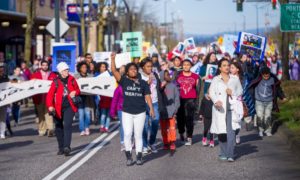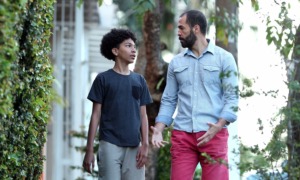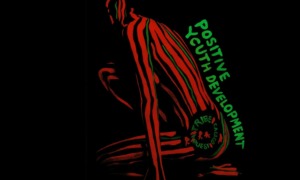Baltimore, Md.
(410) 396-5356
dtaylor@epfl.net
Objective: Provide service-learning opportunities for youth and help them see libraries as valuable resources.
In a Nutshell: The Community Youth Corps (CYC) provides training in customer service, information literacy, library services and media technology. Teen interns are placed in small groups in neighborhood libraries to work with staff members and college volunteers to develop after-school activities tailored to the interests of local youth.
Where It Happens: In Enoch Pratt Free Library (EPFL) branches throughout the city.
When It Began: June 2000.
Who Started It: Deborah Taylor, coordinator for the library’s school and special services, wrote the planning grant to the Reader’s Digest/Wallace Funds. EPFL recognized that it had to do more to provide services to young people, and Taylor wanted to reinvigorate young adult services. Eric Rowe, who recently left after running the CYC for two and a half years, was instrumental in getting the program off the ground.
Who Runs It: Taylor directs the CYC with the help of seven EPFL librarians and six to 10 college volunteers.
Early Obstacles: There were two primary challenges in developing the program, says Taylor. “First, policy and program planning did not reflect the needs and interests of youth in Baltimore. Second, many teens and their friends had negative experiences in local branches that reinforced stereotypes about librarians and libraries in general, which made recruitment and retention of youth very difficult.” Also, library staff didn’t have much time.
How They Overcame Them: The key was giving library staff and youth time to build positive relationships. Staff saw the benefits of youth serving the public and assisting in the branches. Many of the youth interns began to view the library as a place to learn new skills, help others in the community and build relationships with peers and adults. “We focused on service-learning because it gave youths an incentive to join CYC and focused program planning around community needs,” says Taylor, referring to the service requirements that youth must complete to graduate from high school in Maryland.
Cost: The yearly operating budget is $130,000. The program is free and interns get bus tokens for transportation.
Who Pays: The library received a three-year, $400,000 grant from The Wallace Funds as part of the Public Libraries as Partners in Youth Development Initiative. The initiative is intended to help library systems integrate youth development projects into their services.
Who Else Has Kicked In: Wide Angle Community Media, Baltimore Clayworks and TT Systems, which led workshops in video production, industrial and fine arts and technology training, respectively.
Youth Served: The grant requires that CYC serve low-income youth, which is the target group at the four original branch sites.
Youth are recruited through the city public schools. About 150 youths, mostly African-American, have participated.
Youth Turn-Ons: The program’s library base appeals to youth who are quiet by nature, as well as those who desire friendships with older youth. Also, CYC participation counts toward the service-learning hours required for high school graduation.
Youth Turn-Off: Some aspects of the initial intern training are done in an academic format.
What Still Gets in the Way: Staff shortages throughout the library system mean less people available to work with students in the branches. “The college mentors make up for the staff shortages somewhat, but it is very difficult for any librarian to balance time meeting customer needs and planning time with the interns,” says Taylor.





























